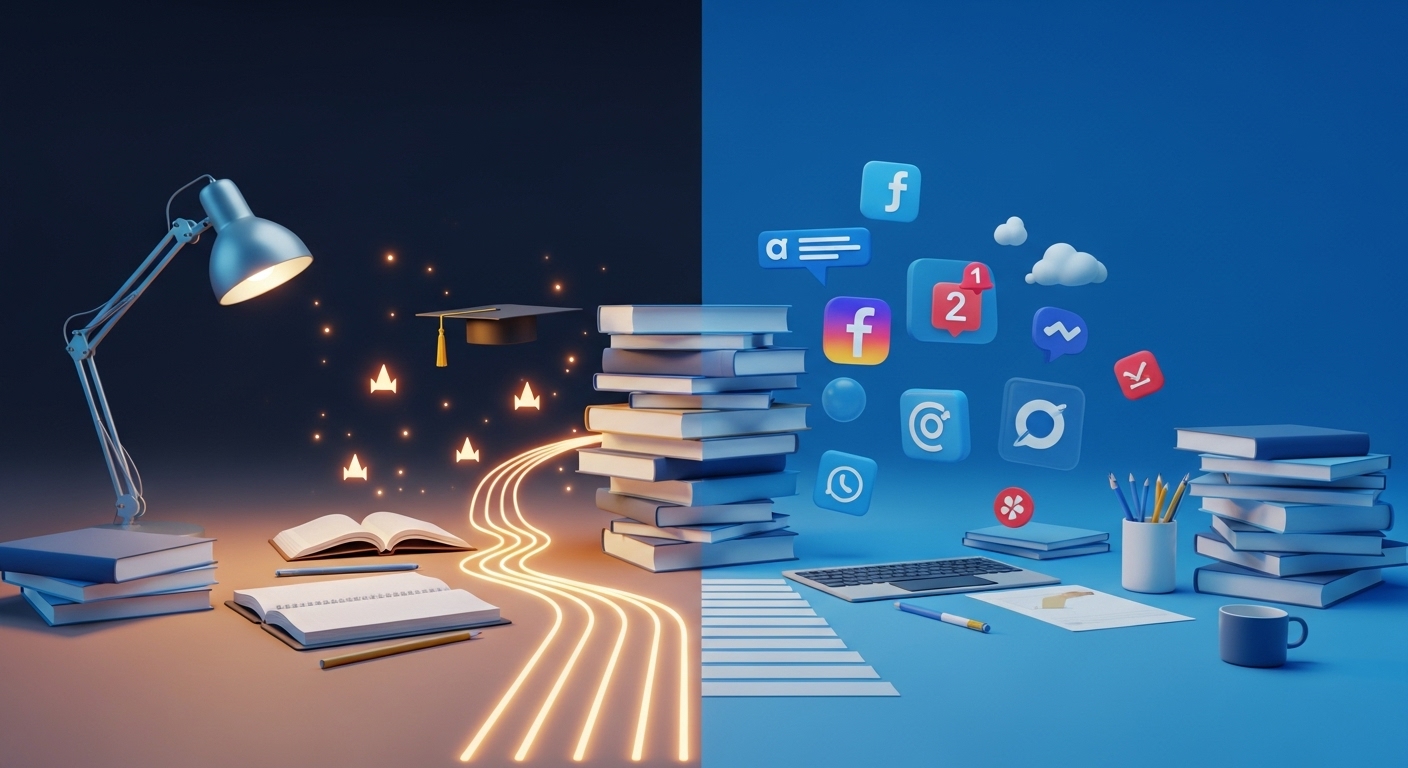Post #1 – Effects of Social Media on Learning
When it comes to the influence of social media on my learning process, it has increased steadily since the COVID-19 pandemic. I started my bachelor’s degree in psychology in 2020, and in the first two terms, I had to take online classes due to lockdowns during the COVID-19 pandemic. While traditional textbooks and recorded lectures did provide a learning foundation, the other platforms, like YouTube and Reddit, played an important role in deepening my understanding and connection with new perspectives. The mixture of quick multimedia explanations and peer interaction pushed them to learn more effectively as well as stay motivated.
In Bui et al (2023), they summarized the research on the affective, behavioural, and cognitive dimensions of using social media in education. One study that they mentioned was about the use of the telegram in English learning, which had a positive effect in reducing students’ anxiety and increasing their motivation. I had a similar experience when I joined a Reddit group for one of my courses; the group had me engaged with the sense of shared effort and encouragement among peers. Also, in the group, whenever I needed to clear my academic doubts, I always had easy access to multiple perspectives, which made it easier for me to learn.
The article also sheds some light on the challenges of learning via social media. One of the challenges that I faced was that the information was random, not structured like a classroom. Also, sometimes I noticed that social media had an overload of information, and some of the information might not be related to our needs, which creates cognitive overload. For example, on YouTube, it’s very easy to search for the information that you’re looking for, but the algorithm is designed to keep you on the app as long as possible, which sometimes blurs the line between study and rest time. Lack of rest may lead to stress.
In the end, I noticed that social media is a double-edged sword; depending on how you use it, it can be very positive or negative. It helps create a like-minded community, vast knowledge related to your topic, but at the same time, there is a risk of high instability in your schedule and higher anxiety levels. In this way, social media backed my learning process by not just providing information, but also engagement with a like-minded community, and motivation for learning. I think with the right balance, social media can turn an isolated study into a networked study.
References
Bui HP, Ulla MB, Tarrayo VN and Pham CT (2023) Editorial: The roles of social media in education: affective, behavioral, and cognitive dimensions. Front. Psychol. 14:1287728. doi: 10.3389/fpsyg.2023.1287728
